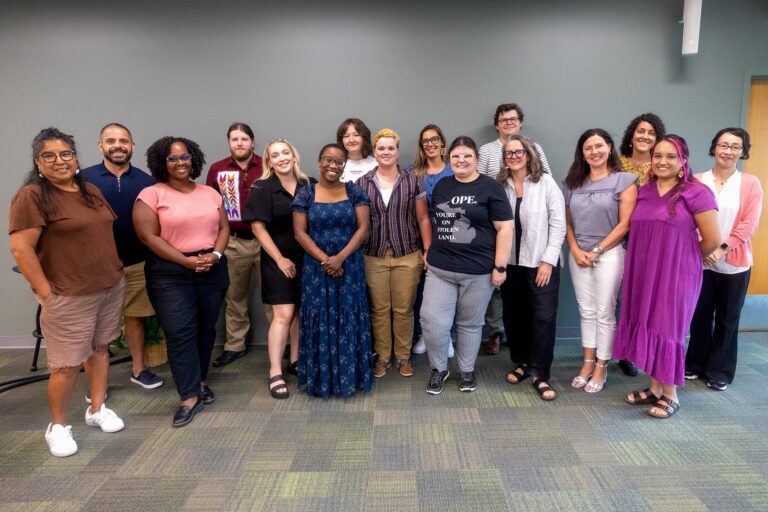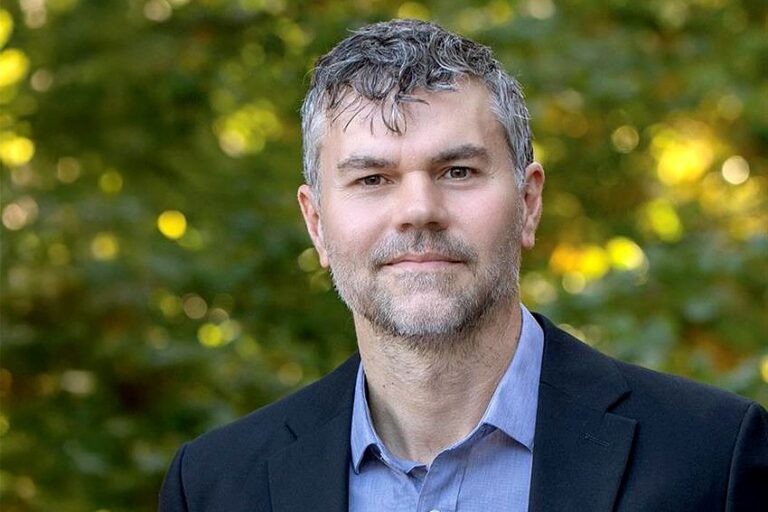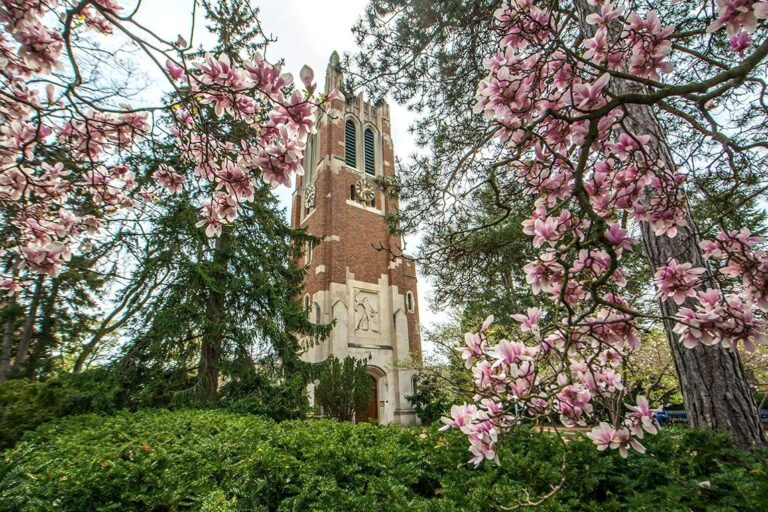Dr. Yvonne Morris joined MSU’s Department of African American and African Studies (AAAS) on September 29, 2021, as an Academic Specialist and says she’s “ready to put Black feminisms and Black women’s knowledge, work, and brilliance at the forefront, not as an act of resistance or response to crisis, but because it is worthy and necessary to exist and just be in its own rights.”
The AAAS Department, the newest department within MSU’s College of Arts & Letters, is blazing a trail in higher education with one of its primary focus areas being on Black feminisms, an area that Dr. Morris is dedicated to as a scholar whose research interests center digital Black feminism and Black digital studies in addition to social media, social change, and social movements.
“The alignment between AAAS’s focus on Black feminisms and my research was definitely an attraction in coming to MSU,” she said. “It is refreshing that Black feminisms is not solely considered in addition to Black studies, but it is center, a core value, and is Black studies. I would love to continue my research within digital Black feminisms at MSU and with AAAS. It is an exciting time to be in digital Black feminism as this field is increasingly expanding with such phenomenal work from scholars. Bringing this to AAAS, MSU, and our students would be impactful.”

Dr. Morris has a Doctor of Philosophy in Curriculum and Instruction: Teaching and Learning from the University of Nevada, Las Vegas, with a focus on cultural studies, international education, multicultural education, and social justice. Her dissertation, titled “Still We Rise: A Black Feminist Qualitative Inquiry Exploring Black Women’s Twitter Experiences,” highlights how Black women created space for themselves to prioritize joy on Twitter as well as used their voice to resist and challenge dominant narratives. She also explored how Black women bond with each other and engage in various forms of digital resistance by protecting their spaces on Twitter given the disproportionate harassment and abuse Black women experience in the form of misogynoir.
Prior to Michigan State University, she worked for the Nevada Department of Education (NDE) in the Office of Students and School Support as a Project Coordinator for CSI (Comprehensive Support and Improvement), TSI (Targeted Support and Improvement), and ATSI (Additional Targeted Support and Improvement) Schools. In that position, she primarily collaborated with colleagues and local education agencies to provide support for Nevada’s underperforming schools in addition to grant management. Additionally, under NDE, she served as the Coordinator for the Nevada Commission on Mentoring, which was established under AB 235 to support and facilitate mentorship programs in Nevada.
She now looks forward to working collaboratively with other Michigan State University faculty and staff as the new AAAS Department is being built.
“I am absolutely honored to not only work with and be in community with such esteemed Black women in this department, but I am thrilled to contribute to a legacy of work that students and scholars have done at MSU and for Black studies,” she said. “As we in the department are encouraged to dream our wildest dreams, I am dedicated to ensuring students know they are unequivocally supported in realizing and accomplishing theirs.”
As we in the department are encouraged to dream our wildest dreams, I am dedicated to ensuring students know they are unequivocally supported in realizing and accomplishing theirs.
Prior to her time with the Nevada Department of Education, Dr. Morris heavily engaged with high school students in different college access programs. She worked for Nevada State College, where she held several positions with the TRIO Upward Bound Programs, a federally funded program serving first-generation college bound high school students. In various positions of advising and coordinating the academic and cultural aspects of the programs, it was paramount for her to always celebrate and support her students’ successes both within and outside of academia as well as exposing students to experiences they may not have had if they were not in the program.
She also spent time working as a Program Coordinator for the Abriendo Caminos/Opening Pathways signature program, #Love2TeachLV, at the University of Nevada, Las Vegas, where she earned both a Master of Education in Curriculum and Instruction: Multicultural Education and a Bachelor of Arts in Psychology. As part of the #Love2TeachLV program, she engaged with high school students, primarily those of color, to become interested in education and teaching as a profession in order to address the teacher shortage as well as diversify the teacher workforce in Southern Nevada.
Growing up across the United States and Europe given her parents’ military status, Dr. Morris was primarily raised in Las Vegas, Nevada, a city that she holds close. Though she grew up in North Las Vegas, locally referred to as North Town, her family started their life in Las Vegas from New Orleans and still reside in what is known as the historic Westside – the land that was historically segregated west of the Valley’s train tracks. She was actively involved in her city working with and supporting community programs, initiatives, and organizations. A few examples include working with an organization that sought restorative justice for Black girls who were pushed out of their comprehensive schools; archiving local Black organizations’ records to preserve and add to the Las Vegas Black history collections; and continuing to support, lead, and collaborate with youth organizations toward college access initiatives. This, in part, includes chairing a scholarship committee as well as offering her own annual scholarship for local high school seniors.
Her new position within MSU’s Department of African American and African Studies bridges her passion for supporting students with community and academic engagement, all within an African American and African Studies setting.
“I am extremely thankful and excited to be invited to a department whose mission, values, and vision aligns with my personal values, interests, and skillset,” she said. “So far, my experience working with AAAS has been an amazing breath of fresh air. It is fulfilling to collaborate with this powerhouse of a squad where our why is in sync. I love and value that we have the liberties, encouragement, and support to dream our wildest dreams for the department, students, community, and university. While there is work to be done to make these dreams reality, being able to ‘unapologetically center Blackness and Black feminism’ makes the work lighter.”


